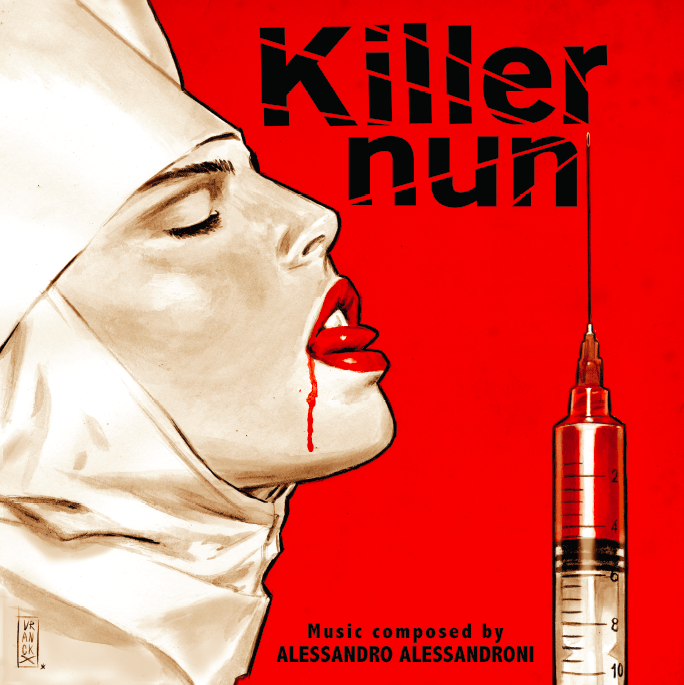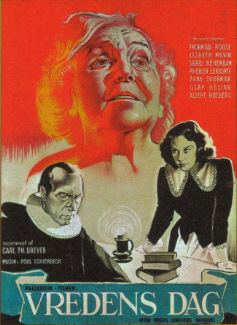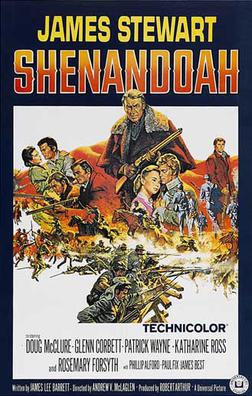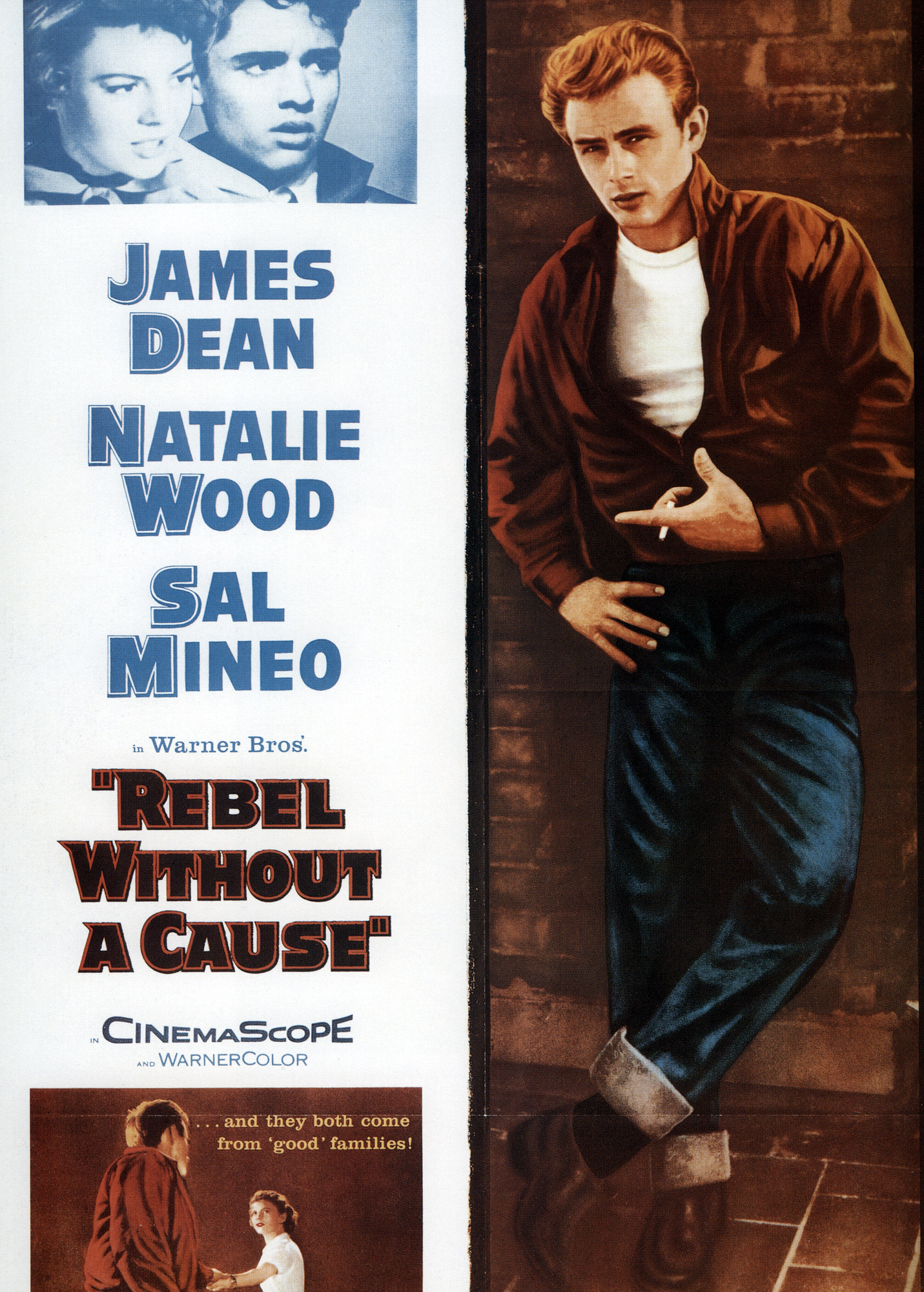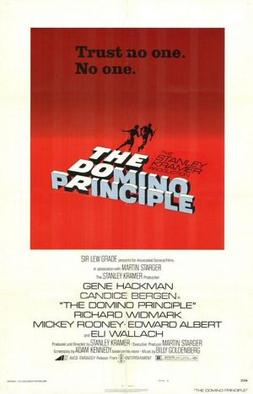Search This Blog
Tuesday, September 30, 2014
Anything Goes (1956)
The Return Of The Native (1994)
Monday, September 29, 2014
Mad Max 2 (aka The Road Warrior) (1981)
La Resa Dei Conti (aka The Big Gundown) (1966)
A bounty hunter (Lee Van Cleef) is hired by a railroad baron (Walter Barnes) to go after a Mexican (Tomas Milian) who raped and murdered a 12 year old girl. But that's all on the surface as there are other motives both financial and political that would be better served by the elimination of the Mexican on the run. A solid entry in the spaghetti western genre, THE BIG GUNDOWN was co-written by its director Sergio Sollima and Sergio Donati who co-wrote ONCE UPON A TIME IN THE WEST. It's an amusing give and take cat and mouse western as Van Cleef pursues Milian yet getting outwitted by him at every turn. When Van Cleef asks Milian why he doesn't kill him when he has the chance, Milian retorts, "Because they'd just send someone else, someone smarter than you!". It's an inventive screenplay with sturdy direction by Sollima that should please not only fans of the spaghetti genre but even if one is not, there's plenty to appreciate. Notably, Ennio Morricone's killer score and Carlo Carlini's (I VITELLONI) razor sharp cinematography.
Sunday, September 28, 2014
Peyton Place (1957)
In the small New England town of Peyton Place in the year 1940, several lives are about to be changed forever: a widow (Lana Turner) and single mother raising her daughter (Diane Varsi), an abusive alcoholic (Arthur Kennedy) whose wife (Betty Field) has a teen age daughter (Hope Lange) from a previous marriage, a mama's boy (Russ Tamblyn), the town's leading citizen (Leon Ames) who objects to his son (Barry Coe) marrying the town tramp (Terry Moore) and the town's doctor (Lloyd Nolan). Mark Robson's film is a textbook example of turning a sow's ear into a silk purse. Based on the scandalous best seller by Grace Metalious, the screenwriter John Michael Hayes (REAR WINDOW) has turned a lurid trashy potboiler (yes, I've read it) into an often incisive look at small town hypocrisy. Where gossip and speculation take precedence over truth, where people cover up their own indiscretions while pointing fingers at others, where normal sexual awakening is made dirty. This is that rare case of where societal restrictions of the era actually made a film better than if allowed to merely replicate the tawdry elements of Metalious' book. The film garnered 9 Oscar nominations including best picture but also 5 for its cast (Turner, Varsi, Lange, Kennedy, Tamblyn). Curiously, the film's underscore by Franz Waxman, one of the most beautiful film scores ever written was not nominated. With Lee Philips, Mildred Dunnock, Lorne Greene, David Nelson and Robert H. Harris.
The Two Faces Of January (2014)
Set in 1962 Greece, an American tour guide (Oscar Isaac, INSIDE LLEWYN DAVIS) who bilks tourists meets up with a wealthy American (Viggo Mortensen) and his much younger wife (Kirsten Dunst). When the older man accidentally kills a private detective (David Warshofsky) on his trail, the younger man helps him take care of the body but he is under the impression the man is unconscious, not dead. Thus begins a journey for the trio that will prove deadly. Based on a novel by Patricia Highsmith (STRANGERS ON A TRAIN, TALENTED MR. RIPLEY), perhaps this tight little noir isn't what it could have been but it's good enough. The directorial debut of Hossein Amini (he wrote DRIVE) who also adapted the screenplay, despite some minor changes he's faithful to Highsmith's book. Mortensen and Isaac make a formidable pair of larcenous souls though a promising thematic thread of Mortensen as a father image to Isaac is hinted at but never fully explored. Still, there's enough style and bite to make it a more than satisfactory contemporary film noir. The discreet score is by Alberto Iglesias (THE SKIN I LIVE IN) and Marcel Zyskind's (28 DAYS LATER) lensing of the Athens and Crete locations is quite handsome. With Daisy Bevan.
Saturday, September 27, 2014
A Cottage On Dartmoor (1929)
A barber (Uno Henning) is infatuated with the pretty manicurist (Norah Baring) who works in the shop but she does not return his attention. When she shows favor toward one of the shop's customers (Hans Adalbert Schlettow) however, he becomes almost psychotic. One of the last British silent films before sound films became dominant (even in the film, a couple goes to a "talkie"), Anthony Asquith's A COTTAGE ON DARTMOOR is technically quite innovative and complex in its narrative structure. It begins with a man escaping from prison and breaking into a woman's house but even before we are able to get our bearings and can grasp what is going on, the film goes into a flashback that takes up the majority of the film. The editing and montage process are quite sophisticated. A lengthy sequence in a film theater as the jealous barber spies on the couple while the audience around them reacts to the film is near astounding in its finesse. The film has the feel of an early Hitchcock and the first hour and ten minutes are compelling. Which brings us to the film's last 20 minutes or so where it falls apart. The narrative ceases to make any logical sense and it feels phony and contrived. Granted, it just might be me, I find forgiveness an overrated virtue. But while it leaves a bad taste in the mouth, it's not enough to dampen my admiration for the film's first hour or so.
Rocco E I Suoi Fratelli (aka Rocco And His Brothers) (1960)
Friday, September 26, 2014
What Price Hollywood? (1932)
A movie mad waitress (Constance Bennett) at the Brown Derby restaurant in Hollywood is invited by a drunk top Hollywood director (Lowell Sherman) to the premiere of his new film at Grauman's Chinese theater. The morning after when he's sober, she badgers him into giving her a screen test. She soon begins her climb to the top while the director descends into an unemployable alcoholic. If the plot sounds familiar it's because it's the template for the 1937 A STAR IS BORN and its subsequent remakes (1954, 1976) though the Oscar nominated screenplay by Adela Rogers St. John and Jane Murfin was never credited. WHAT PRICE HOLLYWOOD?'s director George Cukor would go on to direct the 1954 version. There are differences. In the STAR films, the director is an actor and there is a romantic involvement between the two. In HOLLYWOOD, it's a platonic relationship and the actress is involved with a wealthy playboy (Neil Hamilton). On its own terms, the 1932 film is fairly strong stuff until its sappy happy ending. Bennett's character displays a burning ambition and a tougher exterior than the softer permutations of the female leads of the 1937 and 1954 films. Lowell Sherman was also a director in real life having directed Katharine Hepburn to an Oscar in MORNING GLORY and Mae West in SHE DONE HIM WRONG. With Gregory Ratoff and Louise Beavers.
Thursday, September 25, 2014
Great Moments In Aviation (aka Shades Of Fear) (1994)
Wednesday, September 24, 2014
Fearless (1993)
Tales Of Manhattan (1942)
A formal tailcoat has a curse placed on it by the tailor who cut it. The film follows the tailcoat as it's handed down from owner to owner and how the coat affects their lives: an actor (Charles Boyer) attempts to talk his mistress (Rita Hayworth) into leaving her jealous husband (Thomas Mitchell), a bridegroom (Cesar Romero) cons his best friend (Henry Fonda) into helping him hide an affair from his fiancee (Ginger Rogers), a struggling composer (Charles Laughton) gets his big break to perform at Carnegie Hall, a down on his luck alcoholic attorney (Edward G. Robinson) attends his college reunion, a shyster (W.C. Fields) peddles coconut water laced with booze, a poor farmer (Paul Robeson) and his wife (Ethel Waters) find $41,000 in the coat. As with most portmanteau films, the quality varies according to each individual story. Directed by Julien Duvivier (who would do another anthology film FLESH AND FANTASY the following year), only two of the stories hold up. The Edward G. Robinson and Charles Laughton segments which have some poignancy, the others stumble. When the film was first released, the W.C. Fields segment was cut out and as far as I'm concerned, it could have stayed cut out. The final segment is difficult to sit through as the black stereotypes make it borderline cringe worthy, enough to cause Robeson to give up films entirely. Others in the large all star cast: George Sanders, Phil Silvers, Elsa Lanchester, Eugene Pallette, Roland Young, J. Carrol Naish, Marcel Dalio, Gail Patrick, Mae Marsh and Margaret Dumont.
Tuesday, September 23, 2014
Ants! (1977)
Monday, September 22, 2014
On Moonlight Bay (1951)
Small town Indiana in the 1910s, a young tomboy (Doris Day) falls in love with a college student (Gordon MacRae) with unconventional ideas. This irks her father (Leon Ames) who tries to get her interested in other boys. Clearly a knock off of MEET ME IN ST. LOUIS but that doesn't make it any the less charming. As in MEET ME IN ST. LOUIS, Ames is once again the head of the household and there's a mother (Rosemary DeCamp), daughter (Day), maid (Mary Wickes) and a precocious boy (Billy Gray, DAY THE EARTH STOOD STILL) in place of Margaret O'Brien's Tootie. Though set in the 1910s, its head is clearly set in the early 1950s. The film seems to endorse the idea that radical ideas are a normal phase college kids go through but that it's something to grow out of such "intellectual" notions and accept societal conventions. There aren't any original songs, instead songs of the actual period like Cuddle Up A Little Closer and On Moonlight Bay are used. But the songs themselves seem almost a throwaway, for a musical they certainly get short shrift. Directed by Roy Del Ruth. With Ellen Corby and Esther Dale.
99 Women (1969)
A South American prison for women is located on an island far away from civilization. It's run by a sadistic warden (Mercedes McCambridge) and governed by a corrupt official (Herbert Lom). When a new administrator (Maria Schell) is sent to make humanitarian changes, the two plot to have her discredited and keep the status quo. Directed by Jesus "Jess" Franco (who's never actually made a good movie as I can remember), this low budget exploitation "women behind bars" flick is rather tame and slow moving. The slight story is padded out by soft core porn inserts and inmate catfights. Any pretense to reality flies right out the window once we see inmates wearing thong underwear and black nylons! McCambridge can't resist the urge to ham it up but Schell, perhaps oblivious to the kind of movie she's in, gives a sincere performance that stands out among the sleazy surroundings. Bruno Nicolai provides the underscore and the theme song is sung by Barbara McNair. With Luciana Paluzzi, Maria Rohm and Rosalba Neri.
Sunday, September 21, 2014
Bakjwi (aka Thirst) (2009)
This Is Where I Leave You (2014)
Saturday, September 20, 2014
Supergirl (1984)
The Tin Star (1957)
A well intentioned but incompetent young sheriff (Anthony Perkins) can't maintain control of his small town. When an ex-sheriff turned bounty hunter (Henry Fonda) arrives to collect his money, the sheriff turns to the more experienced man for help and advice. A well regarded western in some quarters probably because Anthony Mann is at the helm, it's well made and enjoyable but that's not necessarily a recommendation. Despite its Oscar nomination for best screenplay, the narrative is predictable in its by the numbers execution and I was always one step ahead of it. An enervated Fonda, no surprise, walks through his part but Perkins is more engaging as the inexperienced sheriff. But don't expect anything fresh or original. Though obviously shot on the Paramount backlot, the camera work by Loyal Griggs (SHANE) has a nice clean look to it. The cast includes Betsy Palmer, Neville Brand, John McIntire, Lee Van Cleef, Michel Ray and Mary Webster (MASTER OF THE WORLD) as Perkins' love interest.
Friday, September 19, 2014
Simpatico (1999)
A wealthy Kentucky businessman and horse breeder (Jeff Bridges) and his wife (Sharon Stone) would seem to have little in common with a down on his luck paranoid alcoholic (Nick Nolte) in California. But they share a dark secret from their youth together that's never been fully resolved. When the guilt becomes too much for the alcoholic, he sets the wheels in motion for closure but it ends in a way that nobody anticipated. Based on a 1994 play by Sam Shepard, this is a first film by Matthew Warchus (who also adapted the screenplay) and it looks like he overreached himself. I've not read Shepard's play and while its premise is provocative enough in the beginning to hold one's attention, it paints itself into a corner it can't get out of. The characters are complex and layered, the kind of juicy roles actors love to play. But Shepard (or Warchus) has them behave so illogically that by the end it seems too contrived to swallow which is a pity because the acting is very good. When Bridges' performance starts floundering toward the end, you can't be sure if it's the actor or if it's the fault of the writing! Albert Finney as a man whose life has been destroyed by blackmail and Catherine Keener as an innocent who gets caught up in a scam she doesn't understand fare better because the script lets them breathe and they don't have to go through all that angst shared by the three leads. With, in the film's flashback structure: Shawn Hatosy as the young Nolte, Kimberly Williams (FATHER OF THE BRIDE) as the young Stone and Liam Waite as the young Bridges.
Thursday, September 18, 2014
The Mirror Crack'd (1980)
Seven Brides For Seven Brothers (1954)
Set in 1850 Oregon, a frontiersman (Howard Keel) comes into town looking for a wife. He finds a willing bride (Jane Powell) but when she arrives at his farm, she discovers he has six brothers that he didn't tell her about. But having a woman on the place only makes the brothers desirous of brides of their own. This Oscar nominated (best picture) folksy and raucous musical is one of the most joyous of all film musicals. Inspired by Stephen Vincent Benet's short story SOBBIN' WOMEN, director Stanley Donen aided immeasurably by choreographer Michael Kidd gives us a robust and energetic entertainment that hasn't lost its luster in the ensuing years. The film's musical set piece, the barn raising dance may well be the best dance number in an MGM musical film that didn't involve Astaire or Kelly. The songs by Johnny Mercer and Gene De Paul are melodic and clever and it won the best scoring of a musical Oscar for Saul Chaplin and Adolph Deutsch. There's been some contemporary backlash against the film for being politically incorrect. Hairy mountain men kidnapping women and carrying them off to their mountain lair may be appalling but the film obviously doesn't condone it so ..... lighten up! As the brothers: Russ Tamblyn, Jacques D'Amboise, Tommy Rall, Jeff Richards, Marc Platt and Matt Mattox and as the brides: Julie Newmar, Ruta Lee, Virginia Gibson, Betty Carr, Nancy Kilgas and Norma Doggett.
Wednesday, September 17, 2014
Love Affair (1939)
Although they are both engaged to other people, when a playboy (Charles Boyer) and a singer (Irene Dunne) meet on a luxury liner, there's an attraction that can't be denied and grows stronger until by the end of the voyage, it's love. One of the most popular films of its year (it received six Oscar nominations including best film), the film is just fine during the ocean voyage segment where there's enough humor to make it a pleasant love story. Plus while I've never cared much for Dunne in her dramas, I've always enjoyed her work in comedy and she gets a chance to work her comedic chops a bit. But once they reach New York, the film becomes tedious and bogs down in sentimental twaddle that sucks the life out of it. The director Leo McCarey remade the film again in 1957 as AN AFFAIR TO REMEMBER and it worked better for me there than here. With Maria Ouspenskaya as Boyer's grandmother in the film's best scenes, Lee Bowman and Astrid Allwyn.
Tuesday, September 16, 2014
Strait Jacket (1964)
After being released from a mental asylum after 20 years for the ax murders of her husband (Lee Majors) and his girlfriend (Patricia Crest), a woman (Joan Crawford) goes to stay on her brother's (Leif Erickson) farm. It is there she is reunited with the daughter (Diane Baker) that witnessed the killings when she was a child. But there are signs that the mother may not be fully recovered as her strange behavior causes discomfort to those around her. Directed by schlockmeister extraordinaire William Castle from an original screenplay by Robert Bloch (PSYCHO), this is a fun movie in ways that weren't originally intended. Actually Crawford is very good in her first early scenes when she arrives from the asylum. But it isn't long before before she dons a wig and squeezes into a tight dress and the histrionics smash through her soft focus photography! That isn't a complaint, it's what makes the film so enjoyable as kitsch or "camp" if you prefer. Even the obviously fake decapitated heads add to the merriment. You got to hand to Crawford, love her or hate her, the woman was a Star, the quintessential Movie Star. As her daughter, Baker provides some levity to the overheated proceedings. With George Kennedy, Rochelle Hudson, Howard St. John, Edith Atwater and the bland John Anthony Hayes.
Monday, September 15, 2014
Last Of The Red Hot Lovers (1972)
The Big Clock (1948)
When the head (Charles Laughton) of a publishing empire assigns his crime editor (Ray Milland) to track down a mysterious man who may have killed a woman (Rita Johnson), who just happened to be the tycoon's mistress, the editor finds himself in the unenviable position of tracking down ... himself! Can he expose the real killer before the circumstantial evidence does him in? Based on a novel by Kenneth Fearing, this is a smart unassuming slice of film noir with dollops of humor thrown in. Perhaps too much as it often takes away from the tension that director John Farrow has carefully built up and one cheap laugh that stretches credibility though it's convenient for our hero's escape. I'm not a big fan of Milland's work in general but he's inoffensive here. The slack is picked up by Laughton, George Macready as his right hand man, Elsa Lanchester as an eccentric painter and a host of first rate character actors. Overall though, a clever taut thriller that just misses being classic. Updated and remade in 1987 as NO WAY OUT with Kevin Costner in Milland's role. With Maureen O'Sullivan (the director's wife) as Milland's wife, Harry Morgan, Lloyd Corrigan, Richard Webb and Dan Tobin.
Sunday, September 14, 2014
The Skeleton Twins (2014)
After her gay brother (Bill Hader) is released from a hospital after a suicide attempt, the sister (Kristen Wiig) he hasn't seen in ten years takes him in. They begin to bond again but their troubled past has so screwed them up that they may never be whole again ..... if they ever were. A popular film at this year's Sundance film festival, I was expecting more than another dysfunctional family dramedy. The cliches are abundant but I wouldn't mind that if only the writing were better. It makes one appreciate how good Tracy Letts writing on last year's dysfunctional family drama AUGUST OSAGE COUNTY was. There's a subplot involving Hader and an old high school teacher (Ty Burrell, MODERN FAMILY) that's the most interesting portion of the film but it's not fully developed. Fortunately, the running time is a merciful 90 minutes as it was already starting to wear out its welcome. On the plus side and it's a very big plus are the two central performances by Wiig and especially Hader which manage to stomp over the cliches and bring something fresh to the table. Directed by Craig Johnson. With Luke Wilson (very good) as Wiig's good natured husband and Joanna Gleason as their delusional mother.
Hercules (1997)
When Zeus (Rip Torn) and Hera (Samantha Eggar) have a son, they name him Hercules. But the god of the underworld Hades (James Woods) fears that this child will grow up and interfere with his plans to take over Mount Olympus so he has the infant kidnapped by his underlings (Bobcat Goldthwait, Matt Frewer) and ordered that he be killed but they bungle it. Instead he (Tate Donovan) survives and is raised by mortal parents (Hal Holbrook, Barbara Barrie). One of the more lackluster entries in the Walt Disney animation films that found new life in the wake of the enormous success of 1989's THE LITTLE MERMAID. Even the songs by Alan Menken (David Zippel does the lyrics here) are a rather generic lot with only the catchy I Wont' Say I'm In Love lingering awhile. The animation is rather unimaginative and the narrative lacking in the heart that made THE LITTLE MERMAID and BEAUTY AND THE BEAST so special. The humor is rather silly, I think I might have cracked a smile once ..... maybe. Directed by Ron Clements and John Musker. With the voices of Charlton Heston (whose delivery of the line, "You go, girl!" almost makes it worthwhile), Danny DeVito, Amanda Plummer, Paul Shaffer, Kathleen Freeman and Susan Egan.
Saturday, September 13, 2014
Portrait Of Alison (1955)
When his journalist brother is killed in an auto accident (along with a female passenger) in Italy, a commercial artist (Robert Beatty) is questioned by the police about a mysterious postcard his brother mailed before he was killed but he knows nothing about it. Shortly after, the father (Henry Oscar) of the female passenger in the car asks him to paint a portrait of the girl (Terry Moore) from her photograph. But when a model (Josephine Griffin) is found murdered in his apartment, the artist becomes the prime suspect and the auto crash seems less likely to have been an accident. This British crime drama is rather overly complicated but that might be explained by the fact that it's based on a six part television series squeezed into a 90 minute running time. It's a respectable effort, however. Directed by Guy Green (A PATCH OF BLUE), it's nicely ambient (with a steal from Preminger's LAURA) and mystery buffs should have a nice time with it. The cinematography is by Wilkie Cooper (7TH VOYAGE OF SINBAD). Retitled POSTMARK FOR DANGER for its American release. With William Sylvester, Geoffrey Keen and Allan Cuthbertson.
La Notte (1961)
A writer (Marcello Mastroianni) who is considered an intellectual and his wife (Jeanne Moreau), who's not, lead an emotionally empty existence. After Michelangelo Antonioni's groundbreaking masterpiece L'AVVENTURA pushed him into the forefront of Italian cinema, his follow up LA NOTTE was highly anticipated. But instead of breaking new ground or going in a different direction, what we got was more of the same. Which isn't to say it isn't a good film, it is but it's much less subtle than L'AVVENTURA as if Antonioni listened to complaints that audiences didn't "get" L'AVVENTURA so he made its themes of alienation in an increasingly materialistic and sterile society so obvious that a toddler couldn't help but "get" it! Visually, it's a stunner. It's all angles, textures and surfaces. Gianni Di Venanzo's (8 1/2) black and white lensing is a testament to how B&W cinematography is an art unto itself. Pick any random frame and you could hang it on your wall. Yet you have to hand it to Antonioni, making a film about bored people without being boring is nothing to sneeze at. With Monica Vitti and Bernhard Wicki.
Friday, September 12, 2014
Dark Victory (1939)
A young New York socialite (Bette Davis) leads a rather aimless sybaritic lifestyle. But after a serious brain operation, she falls in love with her surgeon (George Brent) and looks forward to a life as the wife of a small town doctor when he decides to do research work in Vermont. But he's kept the truth about her illness from her ... it's terminal. The overrated year of 1939 is often unjustifiably considered the greatest single year for (American) films and DARK VICTORY is often among the films listed that made 1939 such a banner year. It's a three hankie weepie but it's not a great film. But Davis's performance is! It's a classic example of an actor's performance elevating an average film into something special. One shudders to think how treacly the film might have been like with a lesser actress, say, Irene Dunne or Loretta Young in Davis' role. There's a lifeforce in Davis that really does make her premature death a tragedy that such a fire should be extinguished before it's ready to burn out. The film is based on a play that flopped but the movie was a big hit and it's not ungentlemanly to suggest Davis was the reason why. Tastefully directed by Edmund Goulding. With a miscast Humphrey Bogart, Ronald Reagan as a playboy and a lovely performance by Geraldine Fitzgerald as Davis' loyal companion.
Thursday, September 11, 2014
The Professionals (1966)
A wealthy rancher (Ralph Bellamy) hires a group of men to enter Mexico and retrieve his wife (Claudia Cardinale) who has been kidnapped by a Mexican bandit (Jack Palance). Each member of the team has a specialty: explosives (Burt Lancaster), weapons (Lee Marvin), horses (Robert Ryan) and scouting (Woody Strode). This is a first class, rip roaring western adventure! It's not a great western, you'll never find it listed with the best westerns of John Ford, Anthony Mann or Sergio Leone, it doesn't resonate in that way. But it's an example of what talented people can do when everything falls into place. If I have any reservations, it's that the portrayal of the Mexican bandits tends to be the stereotypical image perpetuated by Hollywood films that equals bandido with buffoon. The direction by Richard Brooks (ELMER GANTRY) is skillful and keeps the enterprise bristling while the expert cast flesh out their parts. The wide screen (Panavision) Oscar nominated cinematography is courtesy of Conrad Hall and Maurice Jarre provides one of his rare good scores. With Joe De Santis, Vaughn Taylor and Marie Gomez.
Strangers On A Train (1951)
Tuesday, September 9, 2014
Suor Omicidi (aka Killer Nun) (1979)
In a Catholic hospital, a freaked out morphine addicted nymphomaniac nun (Anita Ekberg) becomes the chief suspect when a series of brutal murders occur. Trash heaven! Sexy lesbian nuns sleep in the nude, a nun reads graphic stories about missionary nuns being tortured to the patients during mealtime before grabbing an old woman's dentures and stomping on them, a patient tells a nun "I'll bet you'd look hot in a bikini", a nun calls the Mother Superior a bitch and this all in the first 15 minutes before the killings start! How does one critique a crazy movie like this? Part giallo, part exploitation flick, I watched the whole thing with a grin on my face. Well except for two scenes (a woman getting her face cut up, an arm covered in needle tracks getting shot up) which were too gruesome. The film begins by telling us this was based on an actual incident but in reality, an incident of a Belgian nun who might have killed patients to rob them of their jewelry is far from the factual account that this whacked out hysterical exercise in nunsploitation would have you believe. Directed by Giulio Berruti. With Alida Valli, Joe Dallesandro, Lou Castel, Massimo Serato and Paola Morra.
Jagged Edge (1985)
Monday, September 8, 2014
Romanoff And Juliet (1961)
Impact (1949)
An executive (Brian Donlevy) for a major corporation is the intended victim of a murder plot by his wife (Helen Walker, NIGHTMARE ALLEY) and her lover (Tony Barrett). But things go wrong when the husband is left for dead in a roadside ditch and the lover is killed in a fiery auto accident. The adulterous wife is put on trial for her part in her husband's death while the husband hides out in a small Idaho town. This noir has a most compelling premise but it lacks style. The director Arthur Lubin is most noted for his Abbott & Costello and Francis the talking mule comedies. It's a decent enough crime thriller but it starts to wear out its welcome after awhile. The romance between Donlevy and Ella Raines (second billed but she doesn't come in till the film's last hour) kills time more than anything else. Much more interesting is Walker as the duplicitous wife. Still, it's a satisfying noir in most ways but it needed to be darker, edgier. With Charles Coburn as the detective trying to break the case open, Anna May Wong, Mae Marsh, Sheilah Graham, Erskine Sanford and Philip Ahn.
Sunday, September 7, 2014
Miami Rhapsody (1995)
The Congress (2013)
Actress Robin Wright (played by Robin Wright) is told by her agent (Harvey Keitel) that's she messed up her own career by turning down plum roles and sacrificing her career for the wrong men (an arrow to Sean Penn?) and raising children. A studio head (Danny Huston) offers her a deal: human actors are obsolete and he will pay Wright to scan her body, take 10 years off her age and use her digital self for the next 20 years but she can't act anywhere during that time. Jump to 2033 where, in order to renew that contract, she enters a state where humans aren't allowed and must be animated and thus a surrealistic adventure into a hellish future begins. Yet another film that made the film festival circuit and opened overseas in 2013 and early 2014 and only now getting a U.S. release. Director Ari Folman's first film since his Oscar winning WALTZ WITH BASHIR is an ambitious mixture of live action and animation with a brilliant performance by Wright at its center. The scene where she is being scanned and required to display all the possible human emotions may be the best piece of acting I've seen all year. The film is uneven to be sure and Folman may have bitten off more than he can chew (but not Wright) but it's going into unchartered territory and the film so enterprising that I was pulling for it. Not all it could have been but I'm more than grateful for what we got.There's a strong underscore that I was positive was from Michael Nyman so imagine my surprise when the end credits showed it was composed by Max Richter. With Paul Giamatti and Jon Hamm (voice only).
Saturday, September 6, 2014
Tennessee's Partner (1955)
When an attempt is made on a gambler's (John Payne) life, he is saved by a cowboy (Ronald Reagan) just arrived in town. They form a friendship that is tested when the cowboy's fiancee (Coleen Gray) arrives for their marriage. The gambler recognizes her as a gold digger he knew in San Francisco. Directed by the veteran Allan Dwan (1922's ROBIN HOOD) from a Brete Harte short story, this pleasant western focuses on the bonds of friendship, how far friends will go to save a friend and the nature of a male friendship in relation to the women in their lives. Significantly, Dwan is able to do this without any traces of the homo-eroticism that often lurk in such portrayals in westerns, (WARLOCK and BUTCH CASSIDY come to mind). The film has an often subtle wit: when the phony gold digging Gray coos to the town's Madam (Rhonda Fleming) while visiting her establishment "I've never been in a place like this", Fleming slyly eyes her up and down before saying, "Don't worry, you'll fit right in!". It's not a film that requires great acting but all the performer play their roles well, even Reagan exhibits a bit of charm. With a young Angie Dickinson as one of Fleming's girls, Anthony Caruso, Leo Gordon and Myron Healey.
Vredens Dag (aka Day Of Wrath) (1943)
Friday, September 5, 2014
House By The River (1950)
When his wife (Jane Wyatt) is away, a writer (Louis Hayward, AND THEN THERE WERE NONE) attempts to make love to his household's pretty young maid (Dorothy Patrick). She protests violently and he accidentally kills her. He coerces his brother (Lee Bowman) into helping him cover up the killing by disposing her body in the river in front of his house. But it won't be long before the river yields up its secrets. This Gothic thriller is one of Fritz Lang's lesser known American films and while it's quite atmospheric, it's easy to see why its reputation isn't on a level of his other American films. The characters are underdeveloped to the point of merely being pieces in Lang's chess game to move the narrative along. Perhaps a stronger cast might have overcome the deficiencies in character development. Hayward overplays his hand and he may as well carry a sign around his neck saying "I did it!". The characters are uniformly unlikable and the only one I had any feelings for was poor Dorothy Patrick! There are several good scenes that stand out (Hayward trying to recover the body) and the film is enjoyable overall but it's so close to being very good as opposed to decent. Edward Cronjager's lensing is first rate though. George Antheil provides the effective score. With Ann Shoemaker, Will Wright, Kathleen Freeman and Jody Gilbert in an effective performance as Bowman's viper tongued housekeeper.
Thursday, September 4, 2014
Shenandoah (1965)
Wednesday, September 3, 2014
Gorilla At Large (1954)
At a touring carnival, several mysterious deaths occur. The blame appears to be focused on a gorilla who escaped from his cage. But is the gorilla a fall guy for something much more human? The reason for this "B" movie's existence is the 3D craze that briefly caught hold of the movies around 1953 and 1954 before doing a quick fade (though it's been resurrected in recent years). In 3D, there were a few cheap thrills (a gorilla's paw reaching out toward the audience) but without the 3D it's a fairly silly and ordinary movie. That the "gorilla" is so obviously a man in an ape suit destroys the possibility of any actual suspense. On the plus side, it's actually kind of fun watching some excellent acting talent reduced to a rather cheesy movie like this. The cast includes Anne Bancroft (in the kind of role that sent her screaming to the New York stage), Lee Marvin, Lee J. Cobb and Raymond Burr! It's actually highly watchable in a loopy sort of way. Directed by Harmon Jones. With Cameron Mitchell, Warren Stevens and Peter Whitney.
Cavalcade (1933)
On New Years Eve 1899, an English family welcomes in the new century. Little do they know what tragedies that century will bring to them. Based on a play by Noel Coward, the film covers the years 1900 to 1933 in the lives of that family mostly seen through the eyes of its matriarch (Diana Wynyard). The winner of the best picture Oscar in 1933, this is film making at its most crude. While some directors like Lubitsch and Mamoulian had already started making movies move, this comes across as bloated and stodgy. The acting (especially by Wynyard) is remarkably poor. It's that stilted stage acting that often passed for good acting in the early talkie era until actors like Spencer Tracy brought a more natural style of acting to the screen. So we slog through two wars (the Boer war in South Africa, WWI), the sinking of the Titanic, love and death till finally (and it was a relief, believe me) the film exhausts itself to its conclusion. There's an uncomfortable favoritism toward the upper classes in the film, who are portrayed as noble while the "lower" classes (like the servants) are portrayed as vulgar and shiftless. Well, it is England after all. Directed by Frank Lloyd. With Colin Brook, Margaret Lindsay, Ursula Jeans, Una O'Connor, Frank Lawton, Bonita Granville, Herbert Mundin, Beryl Mercer and Merle Tottenham.
Tuesday, September 2, 2014
Rebel Without A Cause (1955)
A high school student (James Dean) is the new kid on the block and has trouble fitting in at his new school and is picked up by the police for being drunk. It doesn't help that his home life is fraught with tension between his father (Jim Backus), mother (Ann Doran) and grandmother (Virginia Brissac). The 1950s were a time of change especially for its youth. It was reflected in their frustration at the cocktail sipping suburban lifestyle of their parents, in everything from the possibility of atom bombs being dropped on them (perpetuated by the adults' Communist paranoia) to their music (the emergence of rock 'n roll). Though there had been films about juvenile delinquents and wayward youth, Nicholas Ray's REBEL WITHOUT A CAUSE was the first film to fully realize this schism between generations. It remains a potent piece of cinema with little of its power diminished. The film concentrates on Dean's character which unfortunately leaves Natalie Wood's and Sal Mineo's characters not fully developed. Wood's possible Oedipal fixation on her father (and his discomfort suggests he may be fighting something too) and Mineo's suggested sexual attraction to Dean are hinted at rather than advanced. And as has been mentioned countless times, it's near impossible to view the film today without the tragic deaths of its three leads coloring much of the film. One of the seminal films of the 1950s. With Jim Backus (amazingly good), Dennis Hopper, Nick Adams, Corey Allen, William Hopper, Rochelle Hudson, Edward Platt and a lovely overlooked performance by Marietta Canty in her final film as Mineo's guardian.
Monday, September 1, 2014
The Domino Principle (1977)
Subscribe to:
Posts (Atom)

.JPG)


.JPG)



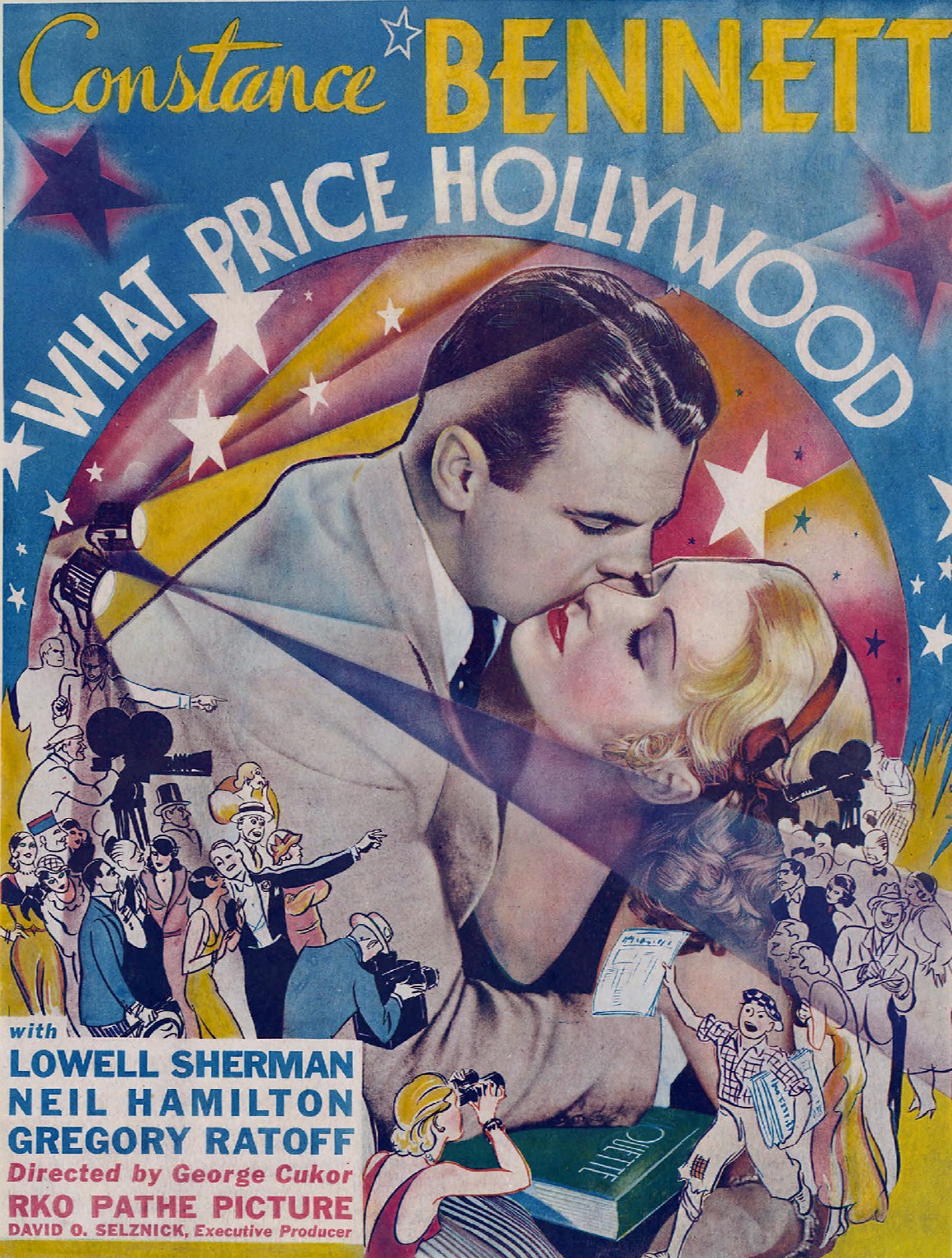

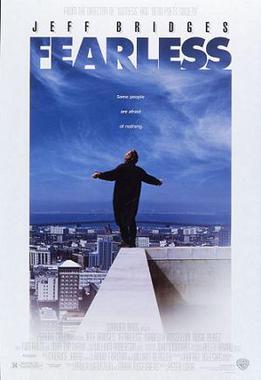

_dvd_art.jpg/revision/latest/scale-to-width-down/180?cb=20120404145917)
.jpg)

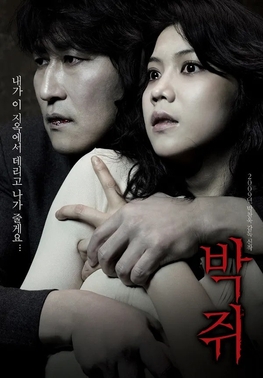
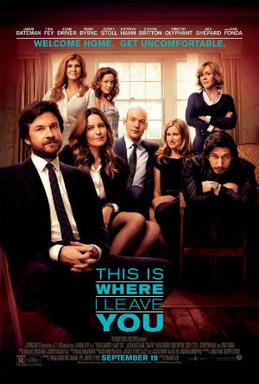




.jpg)

.JPG)

.JPG)







